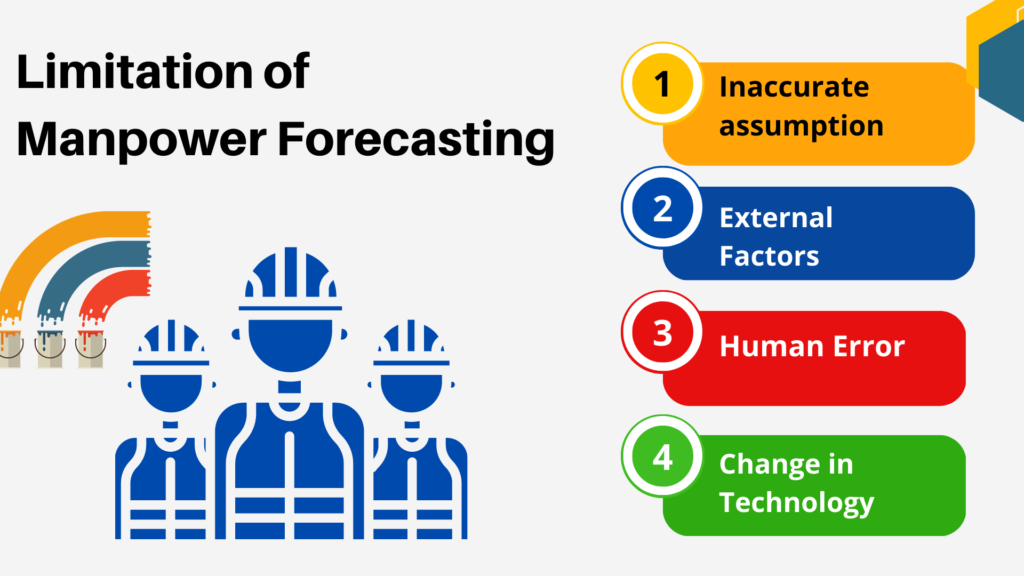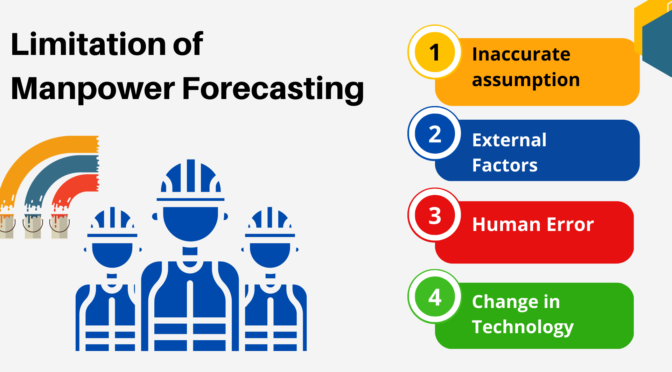Manpower forecasting is the process of estimating the future staffing needs of an organization based on various factors such as business goals, market trends, and workforce demographics. However, there are several limitations of manpower forecasting, like:
Limitation of Manpower forecasting :
- Inaccurate assumptions: Manpower forecasting relies on assumptions about future business conditions, which may not always be accurate. This can lead to overestimation or underestimation of staffing needs, resulting in either a surplus or a shortage of employees.
- External factors: The accuracy of manpower forecasting can be impacted by external factors such as economic conditions, industry trends, and changes in government regulations. These factors are often beyond the control of the organization and can make it difficult to predict future staffing needs.
- Human error: The accuracy of manpower forecasting is also subject to human error, such as incomplete data, faulty analysis, and bias. This can lead to inaccurate forecasts, which can result in costly hiring mistakes or missed opportunities.
- Changes in technology: Advances in technology can impact the way work is performed and the types of skills that are required. This can make it difficult to accurately forecast future staffing needs, as the skills that are currently in demand may not be relevant in the future.
- Resistance to change: Manpower forecasting may also be limited by resistance to change within the organization. If managers are unwilling to adjust their staffing levels or adopt new technologies, then the accuracy of manpower forecasting may be compromised.
Read Also: Techniques of Manpower Forecasting
Overall, while manpower forecasting can be a useful tool for organizations, it is important to recognize the limitations of manpower forecasting and to use it in conjunction with other workforce planning strategies to ensure accurate and effective staffing decisions.
Also Visit: Prep with Harshita



12 thoughts on “Limitation of Manpower Forecasting”